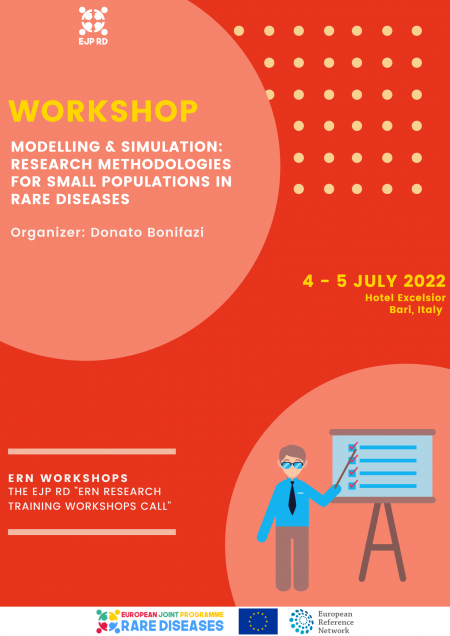
Concept
The study of rare and complex diseases affects the sample size of the study population.
Undoubtedly the study of small populations strictly relates to the need to generate bridging data. Low-prevalent and complex diseases as well as the small populations are two great challenges, which the rare disease (RD) community is facing by employing powerful in silico predictive methodologies, as those applied in rational drug design, pharmacometrics and modelling and simulation (M&S). Model-based approaches are significantly advantageous for research in small populations. They provide quantitative insights into pharmacokinetics-pharmacodynamics (PKPD) relationships as well as reliable predictions of age-related drug metabolism and toxicities. The implementation of strategies may allow the generation and validation of informative models even with reduced sample sizes. In addition, model-based methodologies give the opportunity to address root causes of drug failure at the early stage and to improve late-stage clinical development productivity, efficiency, and success.
Aim
The workshop ‘Modelling&Simulation: Research Methodologies for Small Populations in Rare Diseases’ is aimed at facilitating discussion and exchange of knowledge on the M&S methodologies and strategies as innovative and promising enough for facing complex multifactorial or rare diseases and conditions that require highly specialised treatments and resources. As such, the workshop aims at addressing specific issues on RD for small populations.
The workshop consists of two days with a total of eight hours per day, including lunch and coffee breaks. In order to allow and guarantee fruitful and interactive sessions, the workshop is addressed to a target audience of maximum 25 PhD students, post-doc researchers, senior scientists, young clinicians, investigators and academics affiliated to the ERNs, or willing to enter in the rare disease networks, expert in (or interested in learning more about) data science and machine learning techniques as applied to computational biology, toxicology profiling and PK/PD modeling in small populations.
The training methodology will be based on lectures, seminars, and practical sessions, aimed at providing concrete research skills. Specifically interactive and user-friendly seminars will aim at discussing real-life case studies and introduce specific concepts to deal in the practical sessions, where attendees will have the opportunity to apply knowledge using available databases and software.
The learning objectives are:
– Learn the application of web platforms for in-silico assessment of toxicity and learn the utility of a machine learning approach for the prediction of developmental toxicity of chemicals.
– Learn what is needed for translational preclinical studies.
– Learn the utility of PK/PD modelling and simulation in drug development for small populations.
To register please fill the application form here by 17 June 2022.
The workshop foresees the participation of 25 subjects of which 20 have been budgeted while additional 5 could be allowed to participate without expenses coverage.
Affiliated to an ERN-Full Member or Affiliated Partner institution.
The organiser together with one member of the WP17 Scientific Evaluation Committee will select the most appropriate workshop participants based on their expertise related M&S approaches, including chemoinformatics and ADMETox computational profiling, applied to the rare diseases in small populations.
All registered participants will be informed if they are selected to attend this training course by 23 May 2022.
At the end of the training workshop a Certificate of Attendance will be sent to the participants who attended the entire workshop.
No credits of Continuing Education in Medicine will be issued.
Workshops will run in English.
Hotel Excelsior
Giulio Petroni st., n.15
Bari, Italy
Bonka Georgieva
bgeorgieva@cvbf.net
For general inquiries about the workshops in the ERN RD Support and Training Program please write to:
Sanja.hermanns@ejprd-project.eu
RareEndoERN@lumc.nl
